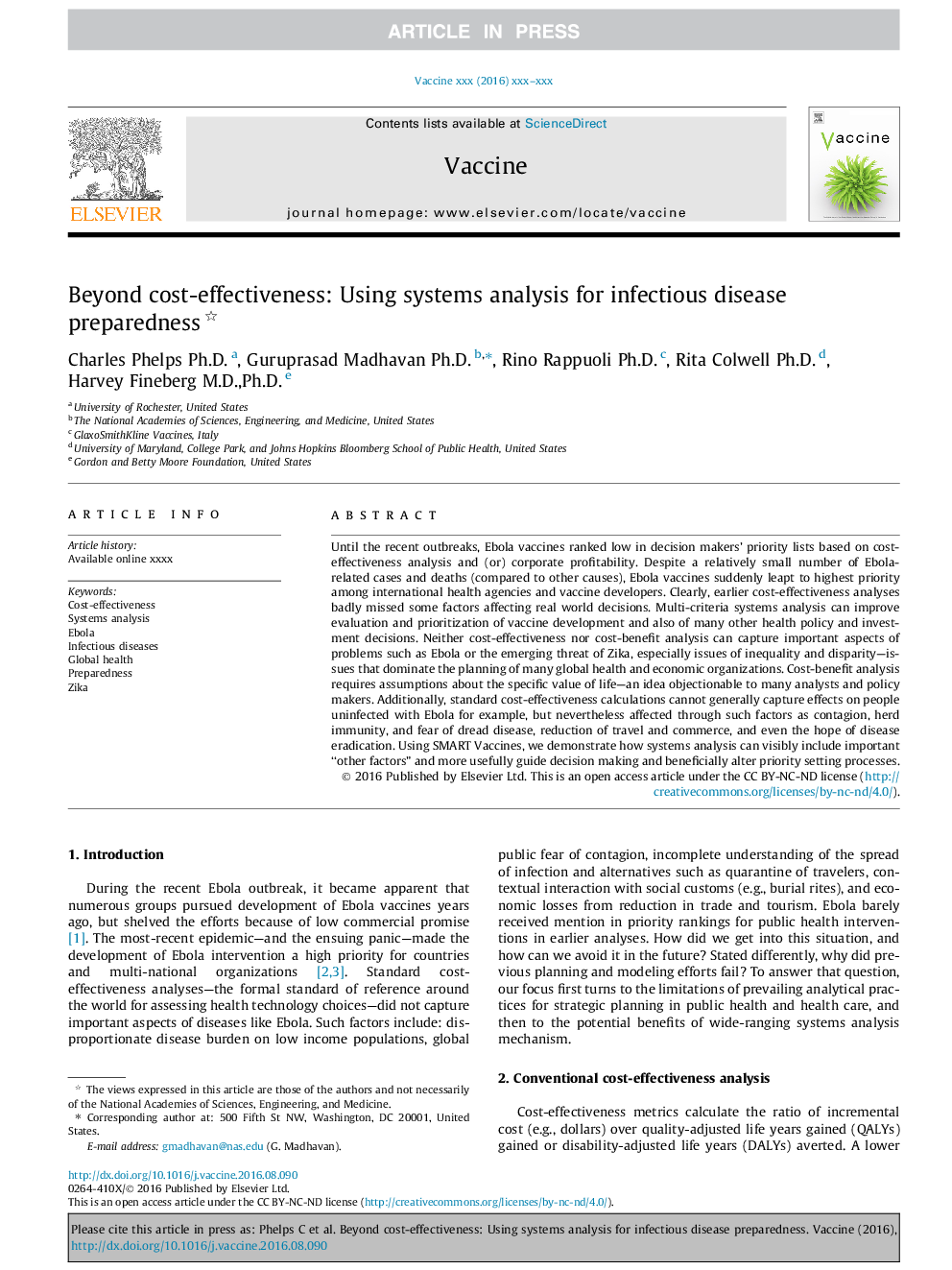ترجمه فارسی عنوان مقاله
فراتر از هزینه بهره وری: با استفاده از تجزیه و تحلیل سیستم برای آمادگی بیماری های عفونی
عنوان انگلیسی
Beyond cost-effectiveness: Using systems analysis for infectious disease preparedness
| کد مقاله | سال انتشار | تعداد صفحات مقاله انگلیسی |
|---|---|---|
| 111487 | 2017 | 4 صفحه PDF |
منبع

Publisher : Elsevier - Science Direct (الزویر - ساینس دایرکت)
Journal : Vaccine, Volume 35, Supplement 1, 20 January 2017, Pages A46-A49
ترجمه کلمات کلیدی
هزینه بهره وری، تجزیه و تحلیل سیستم، ابولا، بیماری های عفونی، سلامت جهانی، آمادگی زیکا،
کلمات کلیدی انگلیسی
Cost-effectiveness; Systems analysis; Ebola; Infectious diseases; Global health; Preparedness; Zika;

